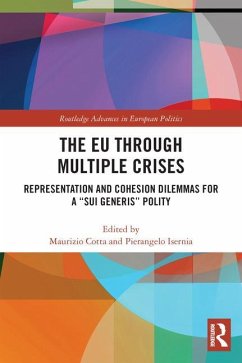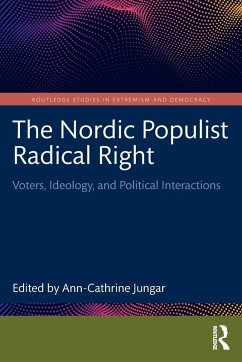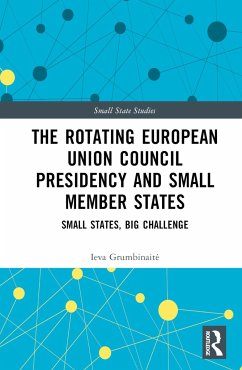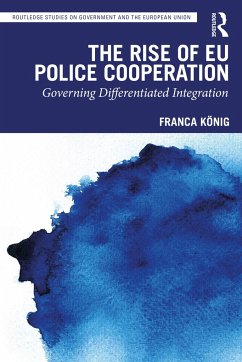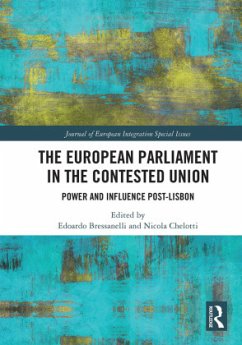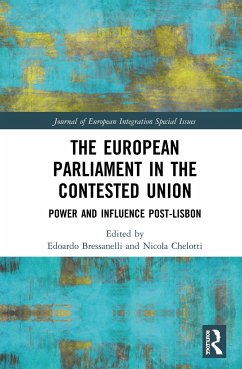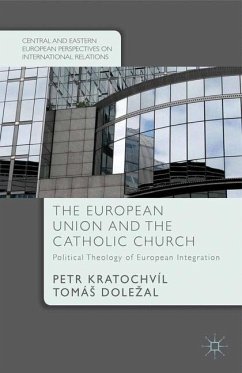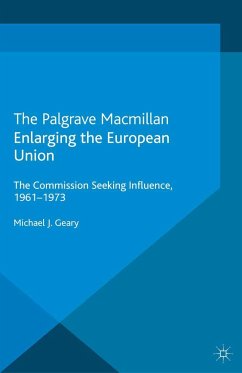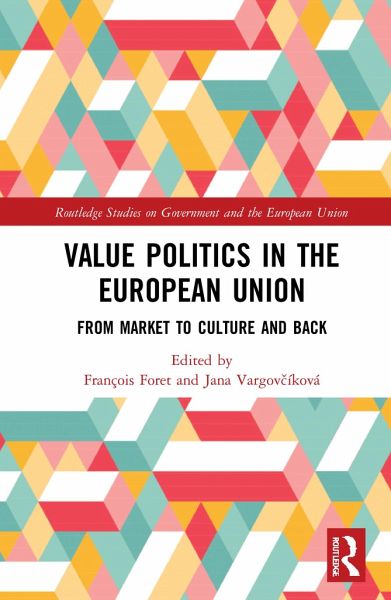
Value Politics in the European Union
From Market to Culture and Back
Herausgegeben: Foret, François; Vargovcíková, Jana
Versandkostenfrei!
Versandfertig in 6-10 Tagen
40,99 €
inkl. MwSt.

PAYBACK Punkte
20 °P sammeln!
This book explores what drives value politics and the way in which it redraws political conflict at EU level.Based on case studies and analyses of statistical data, the book shows what the uses and roles of values have been at EU level over the past decades in both market-related policies and in identity, cultural and morality policies. It challenges the common assumption that the latter is more driven by value conflicts. The research shows the intrinsic similarities between all policy areas regarding the agency and limits of values as drivers of change or continuity. It argues that European v...
This book explores what drives value politics and the way in which it redraws political conflict at EU level.
Based on case studies and analyses of statistical data, the book shows what the uses and roles of values have been at EU level over the past decades in both market-related policies and in identity, cultural and morality policies. It challenges the common assumption that the latter is more driven by value conflicts. The research shows the intrinsic similarities between all policy areas regarding the agency and limits of values as drivers of change or continuity. It argues that European values are a broad and flexible symbolic repertoire instrumentalised to serve as a resource for mobilization, legitimation/delegitimation, the conquest and conservation of power.
This book will be of key interest to both scholars and students in European studies/politics, comparative politics, public policy, political theory, sociology and cultural studies, as well as appealing to professionals of European affairs within and around the EU institutions.
Based on case studies and analyses of statistical data, the book shows what the uses and roles of values have been at EU level over the past decades in both market-related policies and in identity, cultural and morality policies. It challenges the common assumption that the latter is more driven by value conflicts. The research shows the intrinsic similarities between all policy areas regarding the agency and limits of values as drivers of change or continuity. It argues that European values are a broad and flexible symbolic repertoire instrumentalised to serve as a resource for mobilization, legitimation/delegitimation, the conquest and conservation of power.
This book will be of key interest to both scholars and students in European studies/politics, comparative politics, public policy, political theory, sociology and cultural studies, as well as appealing to professionals of European affairs within and around the EU institutions.





